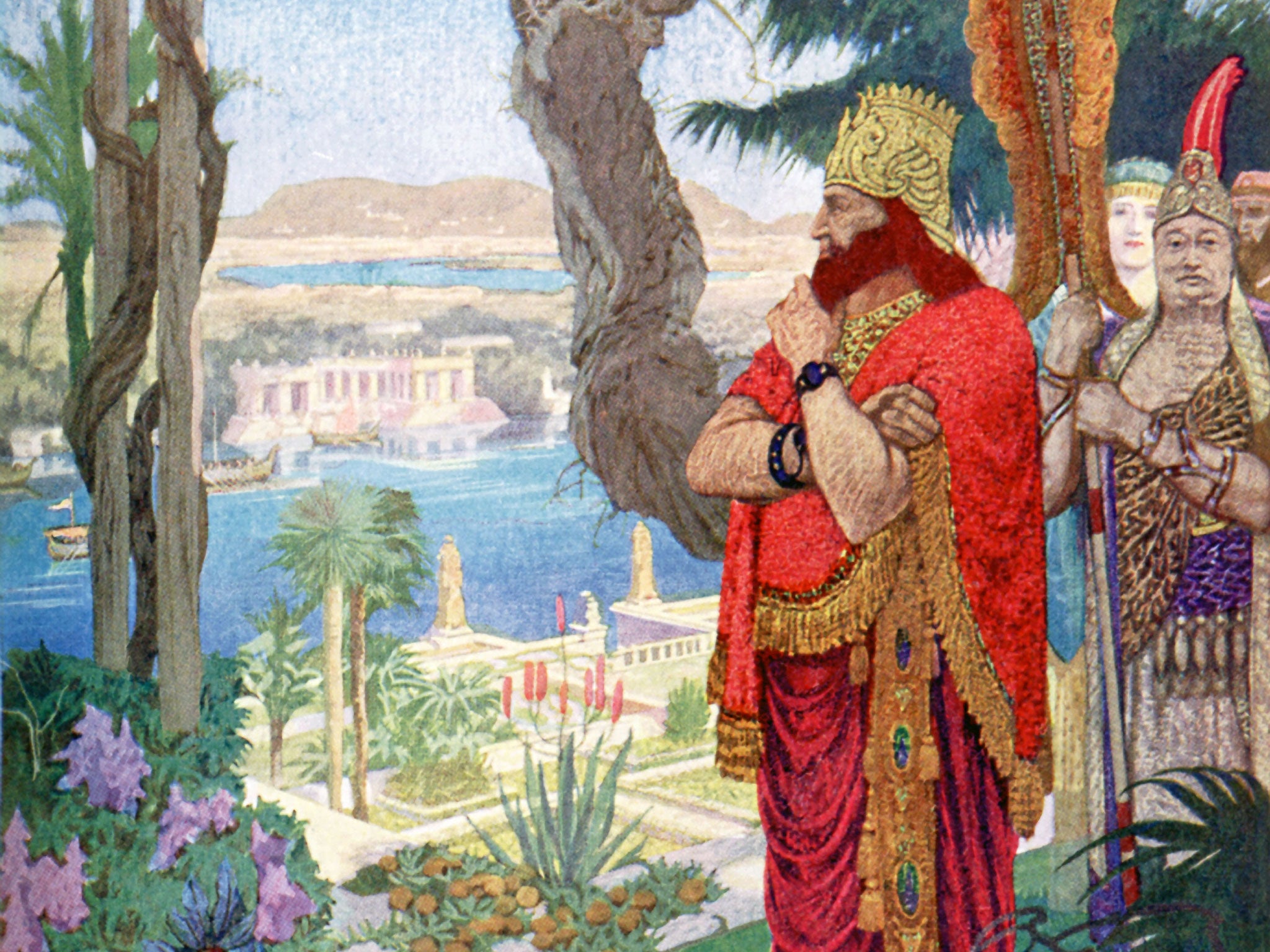Iraq: A History by John Robertson, book review: From centre of the world to an oil battlefield
Iraq was once the cradle of civilisations, but its resources led to a tragic modern era

A few half-remembered names –Babylon, Nebuchadnezzar and Gilgamesh – are perhaps all that most people know about ancient Mesopotamia. This is something John Robertson sets out to rectify in his book, which unlike most Middle East histories, devotes as much space to pre-Islamic times as to what came after the Arab conquest.
Robertson's purpose is to show the debt the world owes Iraq, as a cradle of civilisations, religions and knowledge. The floodplain between the Tigris and Euphrates was, he argues, the first to develop agriculture and irrigation, build cities and conceive kingship, writing and astronomy. Considering its huge span of 6,000 years, the book is surprisingly unhurried, except perhaps in its coverage of recent decades. The ancient dynasties come and go – Sumerians, Assyrians, Chaldeans, Babylonians – but Robertson is never a prisoner of chronology and always finds time for useful asides. Thus, suddenly, we find ourselves learning about the depredations of 19th-century archaeologists, the lost tribes of Israel or the origins of the phrase "a parting shot" (derived from the techniques of mounted Parthian archers).
Among the plethora of examples, two instances of Iraq's contribution to world history stand out. The first is the deep influence exerted on Judaism by Zoroastrianism during its sixth-century BCE "Babylonian captivity". This even includes, Robertson asserts, Judaism's adoption of strict monotheism. Babylon was also where the Old Testament started to be compiled, and much later, the Talmud. Many Jews remained after the captivity ended. By 500CE, the Jewish population in Iraq may have been as high as two million, and it is with regret that Robertson reports its virtual extinction after 1948.
The other contribution is better known: the role Muslims played in preserving and transmitting to the West the learning of the ancient Greeks. The life of Baghdad during the eighth-century Abbasid caliphate is vividly rendered: taverns and slums, palaces and dancing girls but, most important, scholarship. Persian, Greek, Latin and Sanskrit manuscripts were collected and translated. Medicine was promoted, mathematics was developed and Aristotle was saved from oblivion. Eventually, this learning became "a wellspring of the Renaissance", and contributed to the rise of the secular rationalism which would ironically enable the West to "leap-frog and then dominate the Muslim world".
The story of that domination pervades the last few chapters, but in one way it's an old story. A theme which recurs throughout Iraqi history is the mixed blessings of its rich natural resources. In ancient times, it was Mesopotamia's agricultural riches which attracted outsiders. In the modern era, it is oil. From Britain's tutelage of the newly formed Iraq after the First World War to Operation Desert Storm in 2003, the West's greed for oil is presented as a prime mover in Iraqi affairs. The rule of Saddam Hussein was vicious. But Western sanctions in the Nineties, together with the 2003 invasion, have been even more catastrophic.
Now, Robertson concludes, rebuilding Iraq's oil industry is the Iraqi people's only hope. But, in a final, abrupt and somewhat apocalyptic aside, Robertson points out that harvesting and burning Iraq's underdeveloped oil reserves risks bringing "the entire planet to ruin" because of global warming. In the modern era, at least, it would seem, Iraq cannot win.
Join our commenting forum
Join thought-provoking conversations, follow other Independent readers and see their replies
Comments
Bookmark popover
Removed from bookmarks